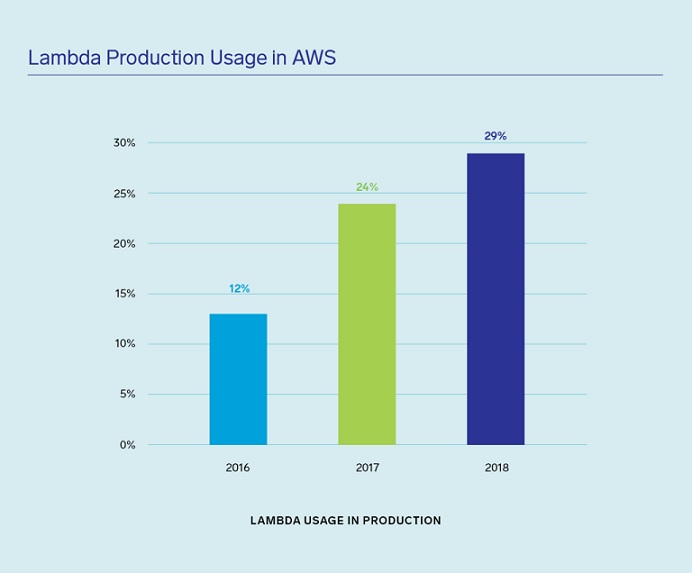Backslash Security introduced its Fix Simulation and AI-powered Attack Path Remediation capabilities.
Imagine that you are tasked with architecting a mission-critical cloud application. Or migrating an on-premise app to the cloud. You may ask yourself, "how do the cloud savvy companies like Airbnb, Adobe, SalesForce, etc. build and manage their modern applications?"
Or perhaps, you wonder about things like :
■ How are they releasing applications multiple times a day? (With technologies like Docker.)
■ How do they ensure always-on availability? (Orchestration automates it for you.)
■ Is this serverless stuff for real? (Oh, absolutely!)
■ Can I ensure security in the cloud? (You can, if you plan it well.)
■ Can I get centralized and real-time visibility into all my development, operations and security tools? (Yes! Especially if you send it all to a machine data platform.)
The answers to these questions and more are found in Sumo Logic's State of Modern Applications and DevSecOps in the Cloud report. The report provides exclusive data-driven insights, best practices and emerging trends within the modern application stack based on Sumo Logic's customer base of more than 1,600 enterprises. In addition, the report highlights trends and visibility into the DevSecOps tools and solutions that are used within cloud-first organizations as they "lift and shift" or modernize and migrate existing applications.
Here are five key takeaways from this year's report:
Azure adoption grows, signaling demand for multi-cloud choices
While AWS dominates in the public cloud world (and we have seen this for three years running), we are seeing multi-cloud adoption double year-over-year (YoY); we also see Azure adoption doubling YoY.
Containers and orchestration technology usage spikes in less than a year
Orchestration and containers adoption are exploding; one in three enterprises use managed or native Kubernetes orchestration solutions and 28 percent of enterprises use Docker containers in AWS.
AWS Lambda is king for serverless adoption
Serverless is quickly rising to the top, with one in three enterprises using AWS Lambda technologies. If they're not already, app architects should consider using Lambda for application or deployment automation for every production application.

Enterprises are adopting cloud-native security services
Security is still a major focus area for enterprises adopting cloud or migrating/modernizing existing traditional applications. More than one in four enterprises are adopting a combination of cloud-native platform security services (AWS CloudTrail, VPC Flow Logs, GuardDuty, CrowdStrike, etc.)
Appetite for security and threat intelligence insights is strong
DevSecOps adoption is increasing. To improve software agility, reliability and security, enterprises are actively monitoring and analyzing their end-to-end tools and processes across the lifecycle with machine data analytics solutions. This gives them the insights needed to create a seamless modern app ecosystem.
Armed with this knowledge, we can use these trending insights to better understand the modern application and DevSecOps landscapes and help enterprises create tailored strategies that are right for their specific operational, security and business needs.
The biggest finding for me? Adopting a secure, cloud-native, unified machine data analytics solution can significantly help organizations streamline their optimization and troubleshooting efforts while providing the level of performance and security their customers require, the closest thing to ensuring success in today's dynamic, ever-changing always-on digital landscape.
Industry News
Check Point® Software Technologies Ltd. announced the appointment of Nadav Zafrir as Check Point Chief Executive Officer.
Sonatype announced that Sonatype SBOM Manager, its Enterprise-Class Software Bill of Materials (SBOM) solution, and its artifact repository manager, Nexus Repository, are now available in AWS Marketplace, a digital catalog with thousands of software listings from independent software vendors that make it easy to find, test, buy, and deploy software that runs on Amazon Web Services (AWS).
Broadcom unveiled the latest updates to VMware Cloud Foundation (VCF), the company’s flagship private cloud platform.
CAST launched CAST SBOM Manager, a new freemium product designed for product owners, release managers, and compliance specialists.
Zesty announced the launch of its Insights and Automation Platform.
Progress announced the availability of Progress® MarkLogic® FastTrack™, a UI toolkit for building data- and search-driven applications to visually explore complex connected data stored in Progress® MarkLogic® platform.
Snowflake will host the Llama 3.1 collection of multilingual open source large language models (LLMs) in Snowflake Cortex AI for enterprises to easily harness and build powerful AI applications at scale.
Secure Code Warrior announced the availability of SCW Trust Agent – a solution that assesses the specific security competencies of developers for every code commit.
GFT launched AI Impact, a new solution that leverages artificial intelligence to eliminate technical debt, increase developer efficiency and automate critical software development processes.
Code Metal announced a $13M seed, led by Shield Capital.
Atlassian Corporation has achieved Federal Risk and Authorization Management Program (FedRAMP) “In Process” status and is now listed on the FedRAMP marketplace.
Check Point® Software Technologies Ltd. announced that it has received a Leader ranking in The Forrester Wave™: Mobile Threat Defense Solutions, Q3 2024 report.
Mission Cloud announced the launch of Mission Cloud Engagements - DevOps, a platform designed to transform how businesses manage and execute their AWS DevOps projects.
Accelario announces the release of its free TDM solution, including database virtualization and data anonymization.




